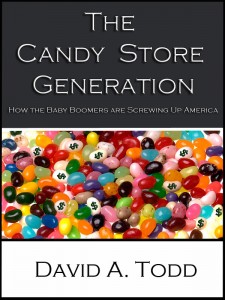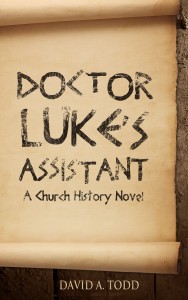Last night, after trying to balance the checkbook and finding it $52.13 off in an undiscoverable place, I went back to working on my income taxes. Most everything is calculated, with the help of spreadsheets, and I’m at the point of filling out forms. My writing business Schedule C is done, ready to print. On our stock trading business partnership return I had only depreciation to calc then I was ready to fill out the forms.
Last night I did the depreciation—really easy. I filled out most of the form 1065 (for partnerships), but came to a place in the form I’ve skipped over before, but which I decided this year I’d better read the instructions and see if I’m supposed to be filling it out. It has to do with capitalization and balance sheet sorts of things. Since this is just a partnership between me and the wife, I’ve never worried about that. I didn’t feel like reading the instructions last night, so decided to pull off of it, and hopefully do it tonight.
Looking for something to do, I started looking at my Yahoo inbox, and discovered I’d never listened to a webinar I signed up for. It was a free webinar back in January, an interview of Jerry B. Jenkins by Terry Whalin. I found that the links were still good, and since I signed up for it I had access. In less than a minute I had the speakers cranked up and was listening.
Most people know that Jerry Jenkins was author, along with Tim Lahaye, of the Left Behind series. Those books sold over 60 million copies (I think 14 books in the series). Jenkins has written many other books, and claims over 175 to his credit.
Part of the reason for the seminar, and its being free, was to promote Jenkins’ The Christian Writer’s Market Guide for 2012, which he took over from Sally Stuart. I’ve had a copy of this in the past, and it is an excellent resource. I’m not buying it anymore since I’m not submitting books to publishers or agents, and I’m not actively seeking freelance assignments in the Christian market, but anyone who is doing those things in an active way should probably buy a copy of the book.
About 25 percent of the 70 minutes was essentially ads for the book, though they weren’t distasteful. The rest of the time was responding to questions that readers had sent in. Whalin read the questions and Jenkins gave answers from his vast knowledge of writing and publishing. I’m not sure I learned anything new, but it was interesting to listen.
One problem was how Jenkins described the self-publishing business, or rather how he described the “traditional” publishing business, and the implication for what that meant for self-publishing. He encouraged writers to not rush to self-publish, but try long and hard to be published with “a legitimate publisher”.
The writing world has been in a bit of a struggle of what to call publishers who publish most of the books in this country, the kind that you have to submit to and hope they select your work. Some call them “royalty paying” publishers. But that doesn’t really work, because even self-publishing companies pay royalties. Some call them “traditional” publishers. But that doesn’t really work, because what is “traditional” now wasn’t many years ago. In the days of Wordsworth, Burns, Lamb, Irving, and even up to Mark Twain, most writers were self-publishers, paying for the publication through pre-sales as subscriptions. So what is traditional? It changes all the time.
Some have settled on the term “legacy” publishers, I suppose thinking that these companies help a writer to build a legacy. I don’t care for that much, but I suppose it’s not too bad. You could call them “advance-paying” publishers. But advances are starting to go away, so that might not work. You can’t call them “commercial” publishers, because self-publishing companies are also commercial publishers. So, the writing world has a terminology dilemma.
Jenkins called them “legitimate” publishers. Since he said that while trying to steer writers away from self-publishing, that means he must thing self-publishing is “illegitimate” publishing. That stuck in my craw. Jenkins is essentially saying that self-publishing is illegitimate. Maybe that’s not what he means, but that’s what he said.
I don’t view self-publishing as being illegitimate. Sure, for a long time I resisted self-publishing, but I think that was as much a cost thing as it was a stigma thing. Since so many self-published books are poorly written, un-edited, poorly designed, and badly assembled (in the print versions), many people shun self-published books. And rightly so. I’ve read some self-published books that were awful. The story-telling was good, but the writing craft lacked, and the printing quality was certainly sub-par. But I’ve read books published by “legitimate” publishers that had too many typos and had less than stellar story-telling.
I’m not sure where I’m going with this post, other than to tell what happened. Despite this unfortunate use of terms, Jenkins is obviously a successful writer, and to be that you have to be a good writer. Maybe with time he will come to see that self-publishing is not illegitimate. At the Between the Lines blog last week, when the self-publishing vs. whateveryouwantocallit publishing debate came up, one commenter said,
After sending a hundred queries and waiting for months to get back rejections of our work, self-publishing seems the last hope. We do it, not because our work was rejected, but because it was never looked at. A huge wall appears that says, “Keep Out! We have too many queries already!”
Self-publishing is a salvage mission for the disheartened looking for some tiny oasis of hope. Unfortunately, the oasis is most often a mud puddle on a drying sidewalk.
Unfortunately, to some extent I concur with those sentiments. Meanwhile, I’m going to try to think of a name for that other publishing path.
 plete. Sunday afternoon and early evening wound up going mostly to editing chapters already completed and making friends on Facebook. Consider that platform building.
plete. Sunday afternoon and early evening wound up going mostly to editing chapters already completed and making friends on Facebook. Consider that platform building.
